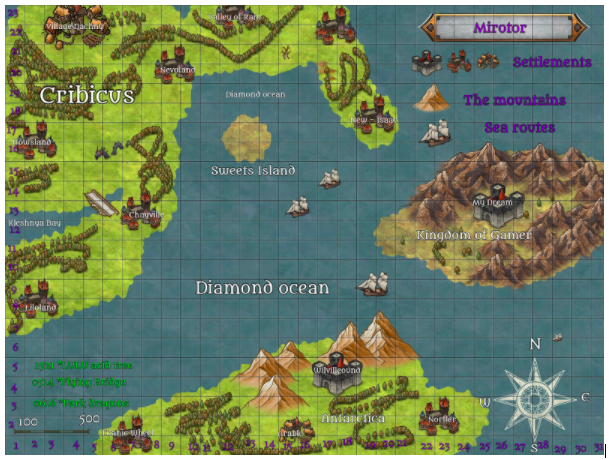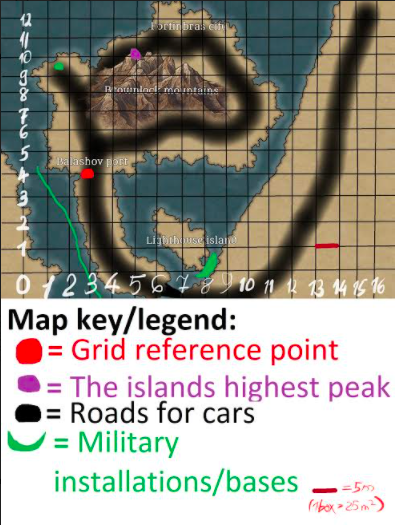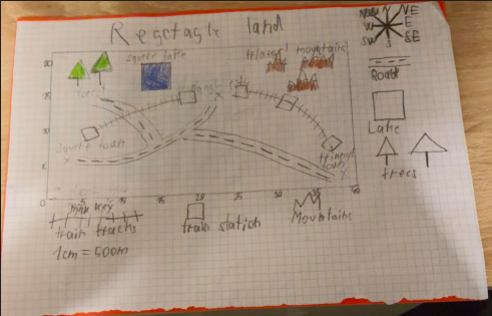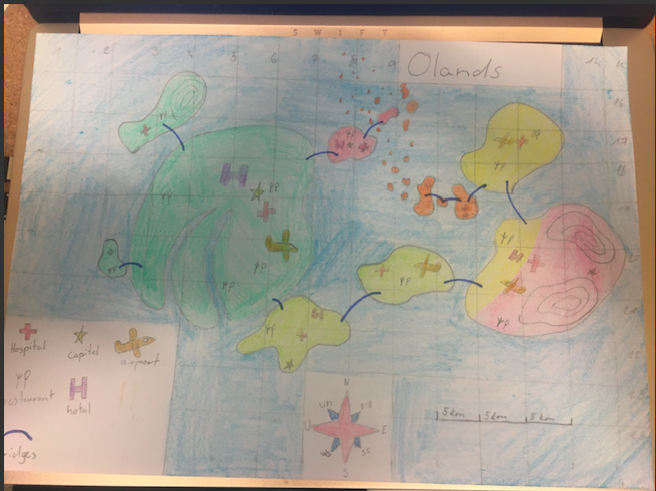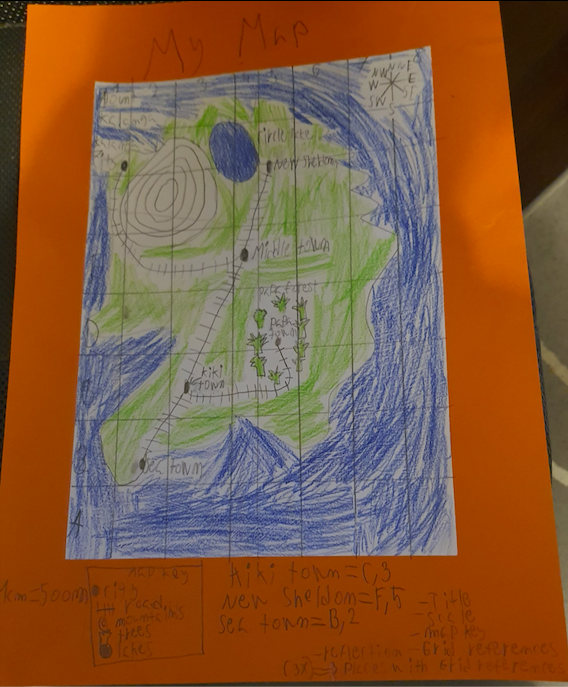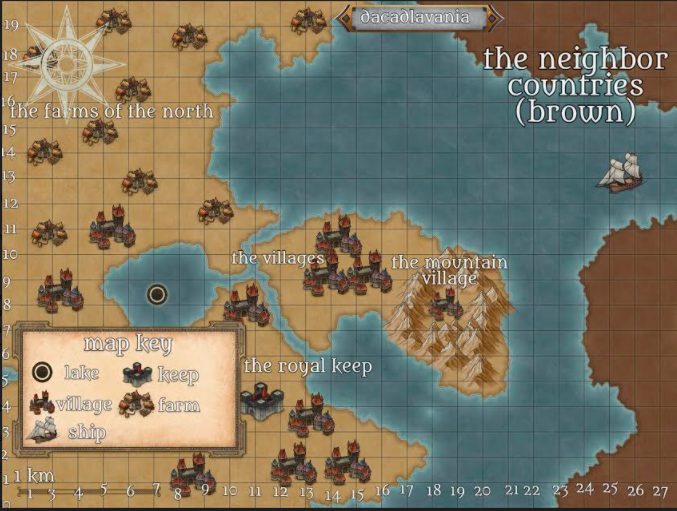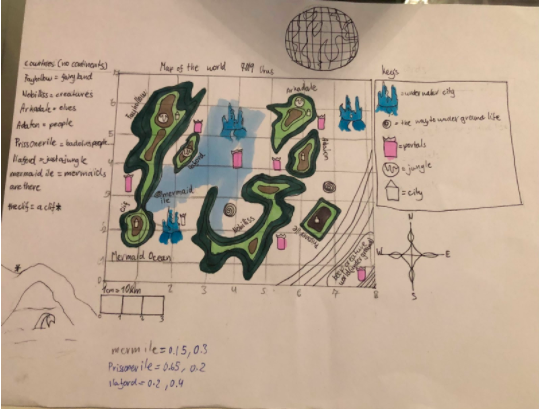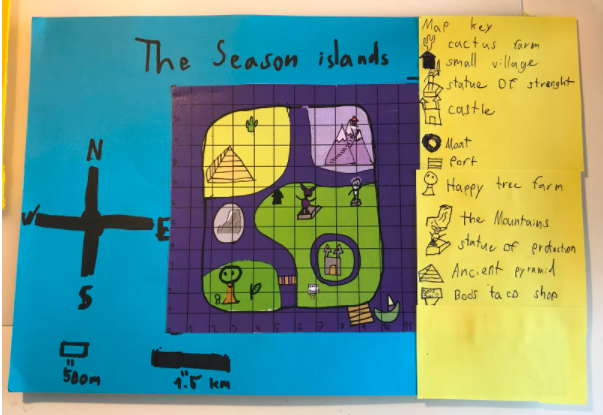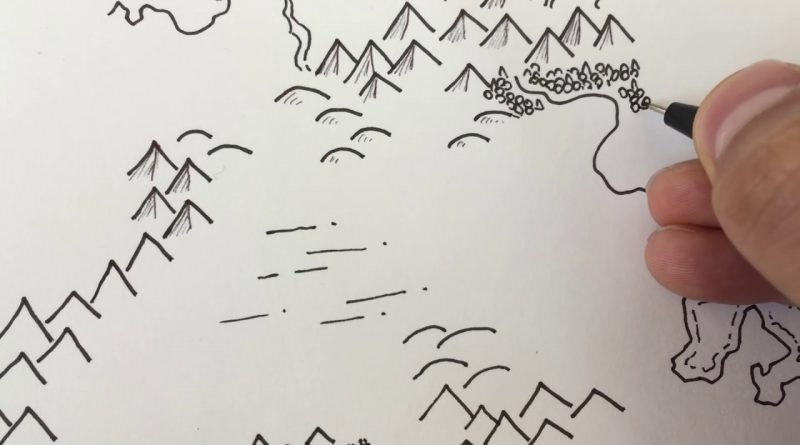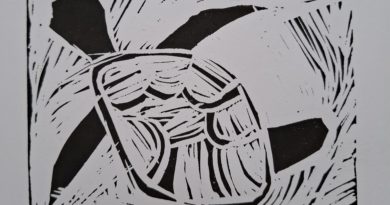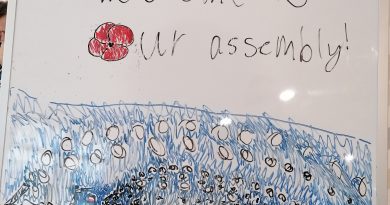Map Making in MYP 1
In their previous unit, students in MYP 1 learned about cartography and how maps can help us to better understand time, place, and space. Specifically, students (1) found out about the different uses of maps, as well as how they can be affected by a specific perspective, (2) explored different examples of maps and how to use them, and (3) took action by creating their own maps and considering the ways that maps can communicate important information.

As a summative assessment task, students created their own maps. Students were given the opportunity to be as creative as they wanted while ensuring they included the following key elements on their map:
- Title
- Compass rose
- Scale
- Grid references
- A map key or legend
- Contour lines (optional)
Using Grid References and Scale
In addition to making their map, students were asked to use the grid references to describe the exact locations of at least three places on the map. Students also used the map scale they developed to calculate the actual distance between different places on their map.
Reflecting on the Process
Lastly, students wrote a reflection on the process of planning and creating their map. Reflection is an integral part of learning and one that I incorporate into all of my units. Reflecting on a project can often be equally if not more important than completing the project itself. To help guide their reflections, students were prompted with the following questions:
• What ideas did you have and why did you decide on this design?
• What went well?
• What didn’t go as planned?
• How could your map be improved?
• What would you do differently next time?
• How does your map help us to understand time, place, and or space?
Students maps
I was happy with the effort that most students put into their maps. They showed me that they have a good understanding of the key elements on a map (e.g., compass, scale, etc.). Students enjoyed learning something new while at the same time getting to be creative. Their reflections were also well done and showed some critical thought regarding the design process.
